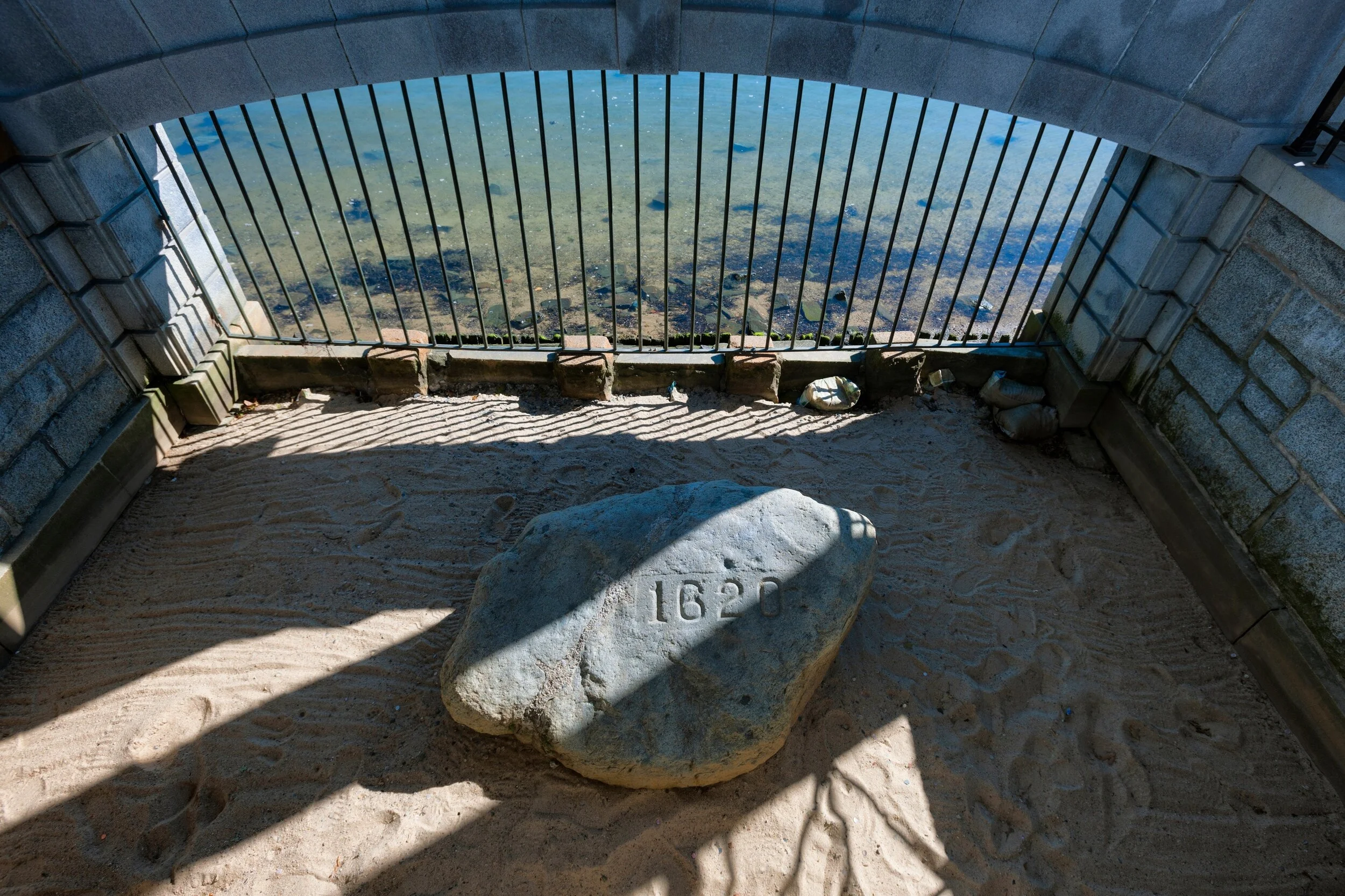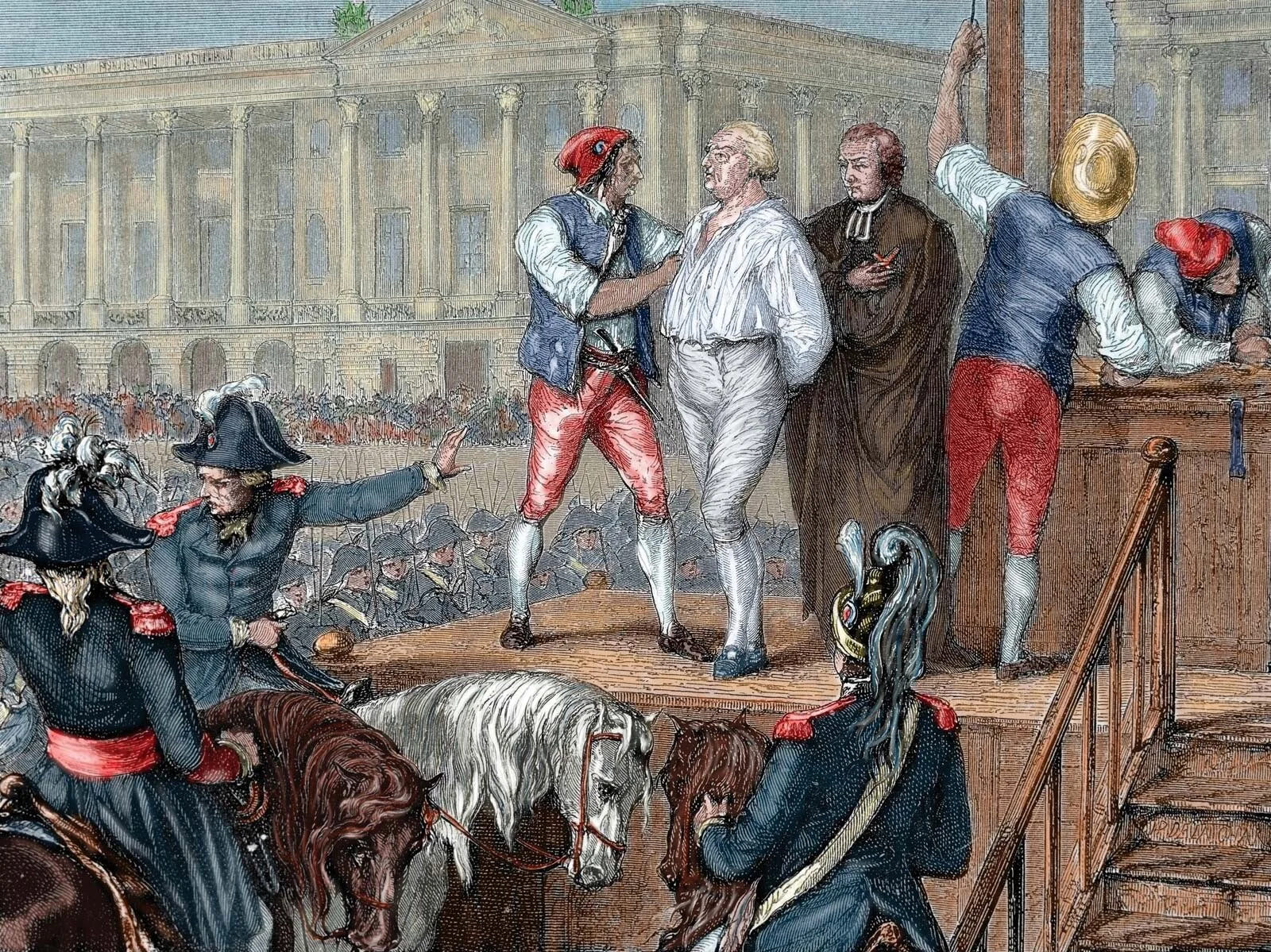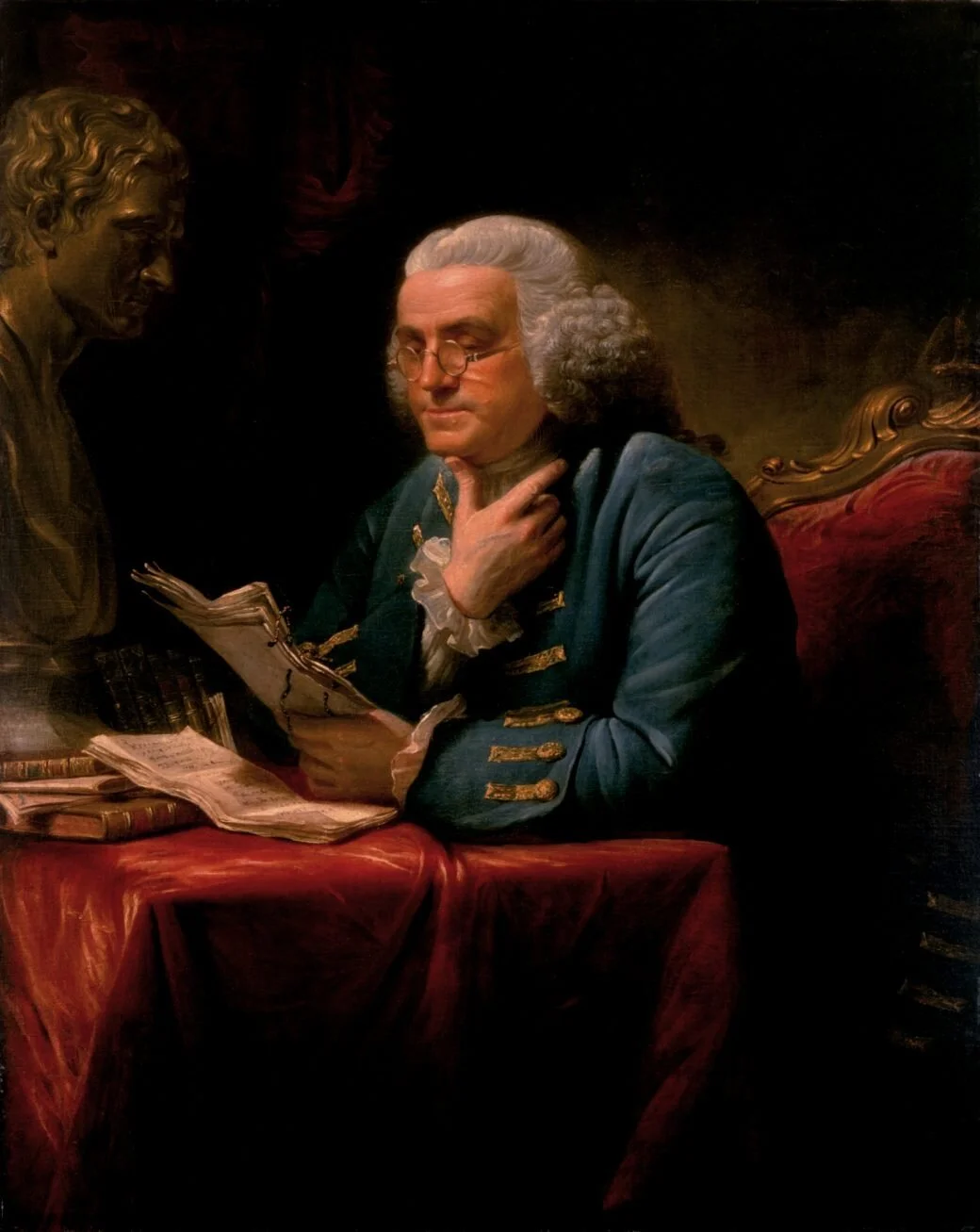We will not hide them from their children, but tell to the coming generation the glorious deeds of the LORD, and his might, and the wonders that he has done. Psalm 78:4
This October 2021, Americans will celebrate the 400th anniversary of the first Pilgrim thanksgiving feast - the celebration which became a model for our national day of gratitude to God.
What should be a season of profound gratitude occurs in the midst of a deep crisis of national amnesia concerning the life, liberty, and history of the United States. At a moment when we should be reminding our children of the many mercies experienced by this highly imperfect but God-blessed nation, the trend is a rejection of patriotic gratitude in favor of cultural self-loathing, the revision of American history, and the desecration of our monuments, flag, and anthem.
American Independence Rooted In Covenants of Freedom Under God
Gratitude, the great antidote to bitterness, begins with remembrance. In this anniversary year, and during this tumultuous moment of ingratitude and historical revisionism, it is vital that we stop to remember by revisiting our national history. There we will find much to tell the “generations to come of the glorious deeds of the Lord…” and the “wonders that he has done.”
It is appropriate that Plymouth plays a unique role reminding America of these wonders and informing our understanding of the exceptional identity of the American Republic as a nation predicated on the acknowledgment of the authority of the Creator, the relationship between faith and freedom, and the necessity of civic virtue.
America’s covenant with liberty began en route to Plymouth with the signing of the Mayflower Compact. Drafted “In the name of God, Amen…” the Compact became an inspiration and model to the drafters of the Declaration of Independence, the United States Constitution, the Bill of Rights, and the early state constitutions.
The very verbiage and underlying doctrine of the Mayflower Compact emerged as the great prelude to the American system of government launched in 1776. The Compact was a binding covenant on the signers and future generations establishing a form of republican representative government under God. Implicit to the Compact was the presumption that the enjoyment of economic liberties and social freedoms are predicated on the relationship between religion, public virtue, the consent of the governed through their representatives, and the rule of law under God.
Though imperfectly applied, these presumptions became the dominant worldview of liberty for the budding American nation, one which was declared from colonial pulpits and enshrined in the declarations and constitutions of American legislative bodies.
What ultimately followed was a Declaration of Independence based on similar presumptions. These included the assertion that “all men are created equal” under the law by God and in possession of “inalienable rights” ordained by Him, which could not be suspended by the state. These included the right to “life, liberty, and the pursuit of happiness.” They were further enumerated in The Constitution and The Bill of Rights to include freedom of religious worship, speech, public assembly, and the authority of the Biblically-rooted Christian “common law” which was incorporated by reference.
Similarly, the original state constitutions followed the precedent of the drafters of the Mayflower Compact by honoring God as the source of lawful authority. For example, the constitutions of New York and Massachusetts officially recognized “His Divine Providence,” with Connecticut declaring him “Savior and Lord.” North Carolina, Delaware, Pennsylvania, New Jersey, and Vermont called Him the ”Almighty.” Massachusetts referenced “the Great Legislator of the Universe,” and Pennsylvania and Vermont applied the moniker, “the Governor of the Universe.” Two states went so far as to make it a matter of constitutional declaration that God inspired the Scriptures of the Old and New Testaments: South Carolina and Pennsylvania.
American Independence as a Cause for Gratitude
The prevailing trend is for politicians, athletes, celebrities and social commentators to distance themselves from the acknowledgments of God in civic life, and present the influence of Christianity in our national history as a source of bigotry and oppression. This approach is in sharp contradiction to the response of past generations who went so far as to proclaim faith in God and gratitude to be inextricably linked to national prosperity and generational blessing.
To this point, consider Massachusetts. More than any of the original colonies, Massachusetts was influenced by the Pilgrim experiment in covenantal government. Consider these words from the Preamble to the Massachusetts Declaration of Rights (1780) clarifying their gratitude for the providence of God which allowed them to establish a compact under His divine authority:
“We, therefore, the people of Massachusetts, acknowledging, with grateful hearts, the goodness of the Great Legislator of the Universe, in affording us, in the course of His providence, an opportunity, deliberately and peaceably, without fraud, violence or surprise, of entering into an original, explicit, and solemn compact with each other; and of forming a new Constitution of Civil Government, for ourselves and posterity, and devoutly imploring His direction in so interesting a design, Do agree upon, ordain and establish, the following Declaration of Rights, and Frame of Government, as the Constitution of Massachusetts.”
The Massachusetts Declaration of Rights was representative of a large body of documents built upon the covenantal framework of responsible citizenship and representative government under God found in the Mayflower Compact:
“A frequent recurrence to the fundamental principles of the constitution, and a constant adherence to those of piety, justice, moderation, temperance, industry, and frugality, are absolutely necessary to preserve the advantages of liberty, and to maintain free government. The people ought, consequently, to have a particular attention to all those principles, in the choice of their officers and representatives: and they have a right to require of their lawgivers and magistrates an exact and constant observance of them, in the formation and execution of the laws necessary for the good administration of the commonwealth.”
American Independence Exceptional and Distinct from Other Political Revolutions
The present amnesia concerning America’s legacy of liberty and the accompanying tidal wave of ingratitude is rooted in far more than a healthy acknowledgment of our national flaws.
It has as its target the very notion that American independence with its Christian foundations is distinctive from other nations of the modern world and exceptional as a source of liberty and blessing. The profundity of American independence is marginalized through comparisons to the French Revolution, and subsequent revolutions.
What of those great “revolutions of independence” which created the modern world?
The French Revolution was rooted in the worship of man, the deification of the State, and the advancement of atheism. The fundamental tool of the French Revolution was not the law, but the mob. Revolutionary leaders cultivated rage and incited murder and lawlessness to overthrow far more than a monarchy. Their target was the destruction of every vestige of Christian civilization. Laws were passed to “de-Christianize” France. It became a capital crime to be a church leader or to harbor one. All over France, ancient church buildings were burnt to the ground or transformed into stables, prisons, or Temples of Reason. The Christian seven-day Creation week calendar was replaced with a ten-day week. Christian crosses, bells, and churches were desecrated or destroyed. Notably, a towering statue of a prostitute was placed in Notre Dame Cathedral as a reminder of the new gods of the revolution.
In the end, forty thousand non-combatant men, women, and children were decapitated in the streets of Paris by “Madame Guillotine.” The streets were said to run red with blood. It is estimated that only 8 percent of those condemned by the revolutionary tribunals were aristocrats and 6 percent were clergy. The remainder of the innocents executed included 14 percent from the middle class, and a whopping 70 percent who were peasants accused of crimes against the revolutionary state.
The Marxist-Leninist Bolshevik Revolution of 1917 followed in the footsteps of the philosophical and tactical footsteps of the French Revolution, as did the Chinese revolution of Mau Tse Tung, of Pol Pot in Cambodia, of Viet Nam under Ho Chi Min, and Fidel Castro in Cuba. In each case, the results were always the same: The installation of a one-party political system, the deification of the state, oppression of Christians and religious minorities, targeted murder of opponents, unlimited government, mass genocide directed at classes of individuals, suspension of individual liberty, economic oppression, and atheism as the prevailing worldview of a de facto slave state.
Notably, these revolutions have as a common denominator their vehement opposition to the one thousand year Christian common law tradition, the Biblical principles of a decentralized representative government under God modeled in Plymouth with the Mayflower Compact, and undergirding and enshrined in our Declaration of Independence, our federal Constitution and Bill of Rights, and our early state constitutions.
Conclusion
American independence is exceptional. The Christian covenantal foundations of our country are unique in the modern world. From Plymouth to Philadelphia and beyond, the emphasis on faith as the foundation of freedom, on civic virtue as the glue for a society, and the rule of law under God as necessary for liberty have been the hallmark of our national identity.
Our independence is fundamentally distinctive from every major revolution of the last two hundred and twenty-five years. Where others have sought to dethrone the Christian faith and the law of God, the results have been economic oppression, murder, and slavery. Where America has sought to maintain what the Framers described as a “firm reliance on Almighty Providence,” generations within this imperfect but blessed nation have reaped the benefits.
The present tidal wave of ingratitude stands in opposition to the sentiments of tens of millions of immigrants who have for more than one hundred and fifty years looked to America as a beacon of hope. They recognized America as the global refuge for all seeking economic, political, and religious freedom without regard to ethnicity or skin color.
And it began in Plymouth.
As we prepare to remember the 400th anniversary of the first great Pilgrim feast of gratitude, we would do well to acknowledge the wisdom of Benjamin Franklin who wrote the following in his 1787 letter to George Washington at a moment of great national peril:
“I have lived, Sir, a long time and the longer I live, the more convincing proofs I see of this truth -- that God governs in the affairs of men. And if a sparrow cannot fall to the ground without his notice, is it probable that an empire can rise without his aid? We have been assured, Sir, in the sacred writings that "except the Lord build they labor in vain that build it." I firmly believe this; and I also believe that without his concurring aid we shall succeed in this political building no better than the Builders of Babel: We shall be divided by our little partial local interests; our projects will be confounded, and we ourselves shall be become a reproach and a bye word down to future age. And what is worse, mankind may hereafter from this unfortunate instance, despair of establishing Governments by Human Wisdom, and leave it to chance, war, and conquest.”




